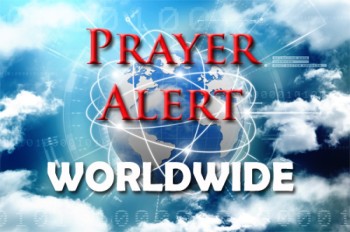Displaying items by tag: Slave Trade
Commonwealth leaders to challenge UK on slavery reparations
Commonwealth leaders are preparing to challenge the UK on the issue of slavery reparations at their upcoming summit, despite Downing Street's insistence that reparatory justice is not on the official agenda. Diplomatic sources say that Commonwealth officials are negotiating an agreement to begin meaningful conversations about reparations for the transatlantic slave trade. This could leave the UK facing significant financial reparations, with some estimates suggesting it owes over £18 trillion to Caribbean nations alone. Frederick Mitchell, foreign minister of the Bahamas, emphasised the need for an apology and acknowledged that reparations go beyond money, highlighting the importance of respect and recognition of past wrongs. Caribbean leaders have intensified their calls for reparations, but the UK government maintains its position against paying them, focusing instead on present-day challenges, such as climate change. King Charles has expressed regret over colonial wrongdoings but stopped short of an apology. The issue is expected to become a central focus at the next Commonwealth summit in 2026.
National Anti-Slavery March - 9 December
Christian charity Hope for Justice has encouraged those appalled by the Libyan slave trade (see World article no 2) to take action. They produced a petition asking for the Government to put pressure on Libya to stop enslavement of Africans; by 30 November, 90,000 people had signed it. Also a national anti-slavery march has been organised for 9 December. Protesters will meet in Belgrave Square at 12 noon and walk peacefully to the Libyan embassy. The march will also raise people’s awareness that globally 24.9 million people are held in slavery. International Organisation for Migration has helped 13,000 people to get out of detention centres in Libya and 8,000 in Niger, but that is the tip of the iceberg.
Libya: slave trade
Recently CNN showed West African refugees in Libya being held by smugglers, mistreated, and sold ‘like cattle’ for £300. Also, Al Jazeera has reported that migrants are being traded in Libyan garages and car parks. Refugees from Nigeria, Senegal and the Gambia are captured as they head north towards Libya's coast to catch boats for Italy. So far public pressure has convinced France and Spain’s foreign ministers to speak out, which has caused the Libyan government to investigate. Pray for more media coverage of trafficking for the watching world to see and for more leaders to speak out and take action against it. The UN support mission is ‘actively pursuing the matter with the Libyan authorities’. However, rights advocates caution that real action may be slow in coming.
Europe: terrorists posing as migrants
Faiez Serraj, head of the UN-backed unity government in Tripoli, has said that Europe is at risk from terrorists posing as migrants unless western capitals help Libya stem the numbers crossing the Mediterranean. He claimed that would-be terrorists were among the tens of thousands of people passing unvetted into Italy across its open southern borders. If this is the case, all the EU will be affected. His comments follow last week’s terrorist attacks in Spain, which police have linked to radical groups in North Africa. Nearly 98,000 migrants have crossed from Libya to Italy this year, almost as many as last year, and there are at least another 700,000 in the country. There is clear evidence of a modern-day slave trade on these routes, and Italy’s social and democratic fabric is under threat amid growing public intolerance to migrants.



